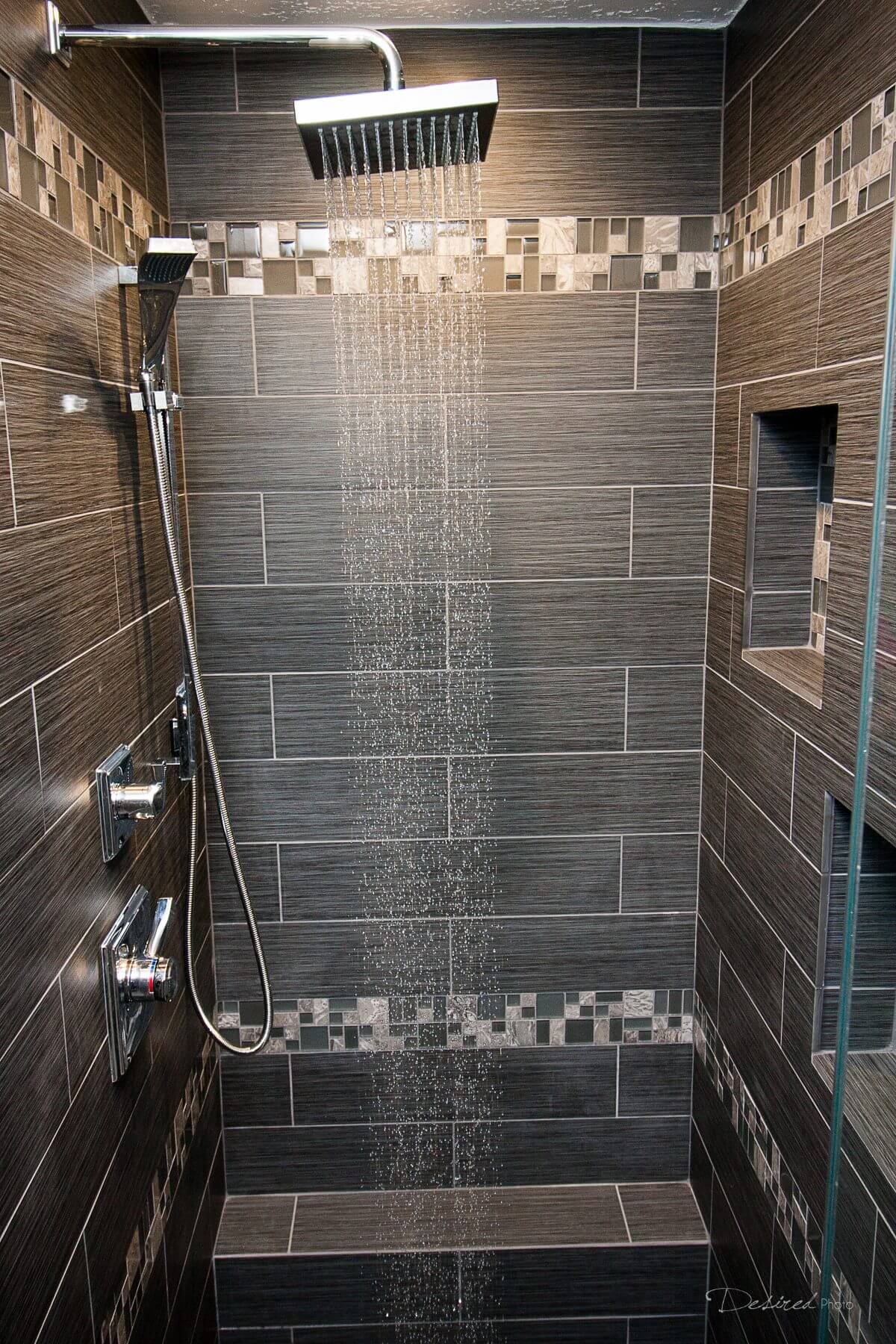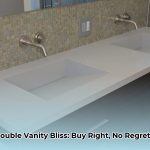Transform your shower into a spa-like oasis with these innovative shower floor ideas. From classic tile to modern mosaics, explore a world of shower floor options to match any style and budget. Boost your bathroom’s safety and style with non-slip shower floor materials and designs. Unlock the potential of your shower space with creative floor tile patterns, textures, and colors.
Shower Floor Materials: Finding the Perfect Fit
Picking the perfect shower floor is a bit like Goldilocks trying out porridge – you want something just right. It’s not just about looks, though that’s definitely a big part of it. You also need something durable, safe, easy to clean, and, of course, within your budget. Let’s dive deeper into shower floor materials, and weigh up the pros and cons of each.
Tile
Tile is probably the most common choice, and for good reason.
Pros:
- Durability: Tile is known for its durability and ability to withstand heavy foot traffic and moisture.
- Versatility: It comes in a dizzying array of colors, patterns, and sizes, and can look anything from classic to cutting-edge.
- Water Resistance: Porcelain and ceramic tiles are especially popular for their water resistance.
- Maintenance: Some might worry about grout lines getting dirty, but with regular cleaning and the right sealant, that’s not really a huge issue. Porcelain tiles, in particular, are pretty low-maintenance and highly resistant to stains.
Cons:
- Slippery When Wet: Some tiles can be slippery when wet, so it’s important to choose textured tiles or use a non-slip bathmat.
- Grout Maintenance: Grout lines can be prone to staining and discoloration over time. Regular cleaning and sealing are essential for preventing this.
Natural Stone
Then there’s the natural beauty of stone, like marble or granite.
Pros:
- Luxury: These materials bring a touch of luxury to any bathroom and create a focal point.
- Uniqueness: Each piece of natural stone is unique, with its own patterns and variations, adding to its visual appeal.
- Slip Resistance: Natural stone is naturally slip-resistant because of its texture.
Cons:
- Maintenance: They do require a bit more TLC than ceramic or porcelain tiles. They need to be sealed regularly to prevent water damage and staining.
- Cost: Natural stone tends to be pricier than other options.
Acrylic
If budget is a primary concern, acrylic is a good contender.
Pros:
- Affordability: Acrylic is one of the most budget-friendly options available.
- Ease of Installation: Acrylic comes in pre-fabricated shower pans, which can save time and money on installation.
Cons:
- Durability: While generally durable, acrylic can be prone to scratches and might not last as long as tile or stone.
Fiberglass
Fiberglass is another budget-friendly option for shower floors.
Pros:
- Cost-Effective: Fiberglass is a relatively inexpensive material.
- Lightweight: It’s lightweight, making it easier to work with during installation.
- Slip Resistance: Fiberglass often comes with a textured surface for added grip.
Cons:
- Durability: Like acrylic, fiberglass might not be as durable as tile or stone. It can be prone to scratches and discoloration.
Vinyl
Vinyl is a practical and affordable choice for shower floors.
Pros:
- Water Resistance: Vinyl is inherently waterproof.
- Comfort: It’s softer and warmer underfoot compared to tile or stone.
- Cost-Effective: Vinyl is a budget-friendly option that can mimic the look of more expensive materials.
Cons:
- Durability: Vinyl can be susceptible to tears, especially in high-traffic areas.
Concrete
For a modern, industrial vibe, concrete is gaining popularity.
Pros:
- Style: Concrete offers a sleek and contemporary look to bathrooms.
- Customization: You can customize concrete with colors and textures, making for a truly one-of-a-kind shower floor.
Cons:
- Maintenance: Concrete is porous and needs to be properly sealed to keep water out, similar to natural stone.
Porcelain
Porcelain tile is a type of ceramic tile that is known for its durability and water resistance.
Pros:
- Water Resistance: Porcelain is fired at a higher temperature than standard ceramic tile, making it denser and less porous. This makes it highly resistant to water damage and staining.
- Durability: Porcelain tiles are incredibly durable and can withstand years of heavy use.
- Style: Like other tiles, porcelain comes in a wide variety of colors, patterns, and finishes.
Cons:
- Slip Risk: Porcelain can be slippery when wet, so it’s important to choose tiles with a textured surface or use a bathmat.
Glass
Glass tiles offer a sleek, modern look and are incredibly stain-resistant.
Pros:
- Aesthetics: Glass tiles can create a sense of spaciousness in a shower.
- Stain Resistance: They are non-porous, making them highly resistant to stains and mildew.
Cons:
- Slip Risk: Glass can be very slippery when wet, so it’s crucial to choose textured or frosted glass for safety.
- Cost: Glass shower floors are generally more expensive than other options.
- Maintenance: Glass can show water spots more easily than other materials, requiring a bit more cleaning.
Pebbles
If you’re looking for something a little different, pebble tiles can create a spa-like feel.
Pros:
- Experience: The smooth stones provide a gentle massage for your feet as you shower.
- Slip Resistance: Pebbles offer excellent traction, making them a good choice for households with children or seniors.
Cons:
- Cleaning: They can be more challenging to clean than smooth tiles due to the uneven surface.
Designing Your Shower Floor: Patterns, Textures, and More
Once you’ve chosen your material, it’s time to get creative with the design.
- Playing with Patterns: A simple change in pattern can dramatically transform the look of your shower floor. Classic herringbone, timeless subway tile, or intricate mosaics can add visual interest and create a sense of movement. You can even create your own custom patterns for a truly one-of-a-kind look. Check out these shower floor tile ideas for inspiration..
- Adding Texture: Don’t be afraid to explore different textures. Textured tiles can add depth and character to your shower floor, while also providing extra grip for safety. From subtle embossing to more pronounced 3D designs, there are plenty of options to choose from.
- Thinking Outside the Tile: Who says your shower floor has to be traditional? Consider incorporating unique elements like custom-made tiles with words or designs, or even embedding small decorative stones or shells for a personalized touch.
What is the Easiest Shower Floor to Clean?
Let’s face it; nobody loves cleaning the shower. But choosing the right flooring can make a world of difference.
Here are some of the easiest shower floor materials to clean:
- Large Format Tiles: Larger tiles mean fewer grout lines to scrub. Porcelain or slate tiles, in particular, are very low-maintenance.
- Solid Surface Materials: Solid surface materials like Corian are completely seamless and non-porous, making them incredibly easy to clean and resistant to stains and mildew.
- Acrylic: Acrylic shower pans are often groutless, which eliminates the need for grout cleaning altogether.
Tips for Keeping Your Shower Floor Clean:
- Regular Cleaning is Key: The best way to keep your shower floor clean is to wipe it down after each use.
- Choose the Right Cleaner: Use a pH-neutral cleaner specifically designed for your type of shower floor.
- Don’t Forget the Grout: If you have tile, use a grout brush and a grout cleaner regularly to prevent staining.
Walk-in Shower Wonders
Walk-in showers offer a sleek, modern look and are a great option for those with mobility issues. Here are a few floor ideas specifically for walk-in showers:
- Penny Tile Perfection: Penny tiles, with their small size and textured surface, offer excellent grip and can be a great choice for walk-in showers. They also complement larger format tiles on the shower walls beautifully.
- Mosaic and Brass: A Touch of Glamour: For a truly luxurious look, consider pairing mosaic tiles with brass fixtures. This combination adds a touch of glamour and sophistication to any bathroom.
Safety First: Essential Considerations
While aesthetics are important, safety should always be a top priority in the bathroom. Here are some key things to keep in mind:
- Slip-Resistance is Key: A slippery shower floor is a recipe for disaster. Opt for textured tiles or consider applying an anti-slip coating to provide extra grip and prevent accidents.
- Durability Matters: Your shower floor needs to withstand daily use, moisture, temperature changes, and the occasional dropped shampoo bottle. Choose durable materials that can stand up to the test of time.
Beyond the Basics: Exploring More Shower Floor Ideas
- Accessibility is Important: If you or a family member have mobility issues, there are plenty of shower floor ideas designed for accessibility, such as zero-threshold entries and grab bars. When planning your shower niches, think about how their placement might affect accessibility in the shower.
- Eco-Friendly Options: For the environmentally conscious, consider sustainable materials like recycled glass tiles or natural stone from responsible sources.
Ready to start your shower floor transformation? Remember, there’s no single “right” answer – the best shower floor is the one that reflects your personal style and meets your individual needs. Happy renovating!
- The Best Battery Picture Lamps for Effortless Artwork Illumination - April 1, 2025
- Double Sink Bath Vanity Tops: A Buyer’s Guide - April 1, 2025
- Bath Towel Measurements: A Complete Guide to Choosing the Right Size - April 1, 2025










